As one of the pillars of the economy , the private sector needs to be "unleashed" more thoroughly to develop and contribute positively to the country's growth.
There are still many barriers to development.
Currently, the private economic sector is very large with nearly 1 million enterprises, 5 million individual business households, contributing about 51% of GDP - more than 30% of the State budget, creating more than 40 million jobs - accounting for more than 82% of the total labor force in the economy, contributing nearly 60% of the total social investment capital. It can be seen that the private economy has been gradually affirming its role and being an important driving force of the economy.
However, economic experts assess that although the Government and ministries and sectors have recently made many positive reforms to support the development of the private economic sector, there are still some barriers that need to be removed.
Discussing this issue, according to Dr. Can Van Luc - Chief Economist of BIDV , one of the barriers hindering the development of the private economy is that administrative procedures and administrative costs are still large and complicated. Up to now, the legal system is still overlapping, there is still a situation of overlapping laws and overlapping regulations, causing difficulties for private enterprises.
In reality, most of the private sector is small and medium-sized enterprises, even micro-enterprises with small financial scale, weak internal strength, weak competitiveness, and limited operational efficiency. Meanwhile, they still have to shoulder many complicated administrative procedures, which are time-consuming, resource-consuming, and increase costs.
Representing the business side, Dr. Mac Quoc Anh, Vice President and General Secretary of the Hanoi Association of Small and Medium Enterprises, cited that it currently takes an average of 16 days to establish a new business. "This is a significant barrier that makes it difficult for Vietnamese businesses to compete with other countries in the region, especially in the current period of deep integration," Mr. Anh emphasized.
In addition, the Hanoi Association of Small and Medium Enterprises said that many member enterprises reported facing numerous difficulties in accessing capital sources to invest in production and business. The policies of reducing interest rates and taxes that have been implemented have not yet helped enterprises reduce their financial burden.
Regarding this story, the assessment of the Vietnam Chamber of Commerce and Industry (VCCI) also pointed out that financial and credit support policies are still not really effective, private enterprises still face difficulties in accessing land and credit due to complicated procedures and administrative barriers.
In addition, the Law on Support for Small and Medium Enterprises issued in 2017, which includes provisions on tax reduction for small and medium enterprises, a policy that is well-regarded, has not yet been implemented. Currently, this enterprise has not yet benefited from the tax reduction policy because the corporate income tax law has not been amended.
Finding solutions to the problem of "private economic development"
Discussing solutions to remove obstacles for the private economy, Dr. Can Van Luc emphasized that in the article: "Private economic development - Leverage for a prosperous Vietnam", the General Secretary mentioned 7 groups of solutions and we need to quickly implement them.
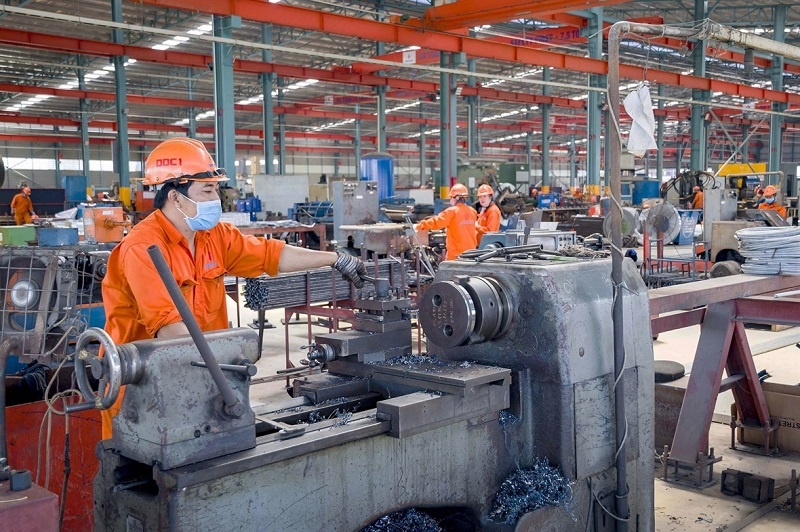
Businesses need to focus on improving internal strength through quality goods and genuine brands.
"In my opinion, we need to focus on changing the mindset of the private economic sector. Enterprises must stick with the national brand, not only for profit and business efficiency, but also for the benefit of the country and the people. Enterprises need to focus on improving internal strength with genuine product quality and brands, ensuring a safe, healthy and effective production and business environment. At the same time, the entire political system must participate in cutting 30% of administrative procedures, 30% of business costs including unofficial costs, 30% of document processing, even in the context that we are vigorously implementing two revolutions: the institutional revolution and the streamlined organizational revolution," Mr. Luc analyzed.
In addition, our country needs to have an ecosystem to encourage upgrading business households to small and micro enterprises. For example, the economic sector of business households and individual businesses contributes about 23% of GDP, so there should be policies to encourage and simplify procedures for business households to upgrade to enterprises. In that process, state management agencies need to help them with business management skills, help them connect the ecosystem between business households with large enterprises, small enterprises at home and abroad so that when producing and doing business, there are both inputs and outputs, connecting enterprises with each other. If this can be done, the target set by the Government of 1.5 million enterprises can be achieved in the coming time.
According to Mr. Dau Anh Tuan, Deputy General Secretary of the Vietnam Federation of Commerce and Industry (VCCI), our country needs to promote technological solutions in administrative procedure reform, further promote the application of digital technology, and build a unified online public service system nationwide. At the same time, there needs to be a mechanism to closely and transparently monitor the reform results of administrative agencies and measure the value that businesses receive.
In addition, according to Mr. Tuan, it is necessary to create an equal environment between private enterprises, state-owned enterprises and foreign-invested enterprises. Private enterprises do not have advantages in accessing land or preferential loans from banks, while the other two business sectors do. Private enterprises mainly access capital through the only channel, which is banks, with relatively high interest rates.
Regarding capital sources, according to Mr. Luc, in the economy there are 5 sources of capital, with regular bank credit capital contributing 50%, and 50% being other sources of capital. Enterprises with the support of the State should diversify other capital channels such as bonds, stocks, investment funds, public investment... Enterprises need to improve their ability to access finance, manage more transparently, and have data accurately reflecting their production and business situation so that banks can accurately assess and then provide unsecured loans...
"Enterprises themselves need to improve management quality, apply technology to operate effectively, promote links between businesses to support each other, grow together and participate more deeply in the global production chain," Mr. Anh further emphasized./.
According to VTV.VN
Source: https://baohoabinh.com.vn/12/199634/Coi-troi-de-kinh-te-tu-nhan-ho-tro-cho-tang-truong-kinh-te.htm










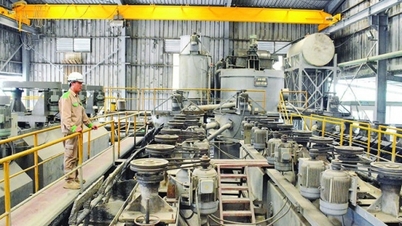














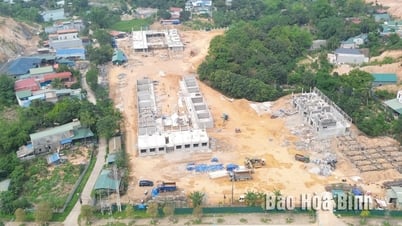
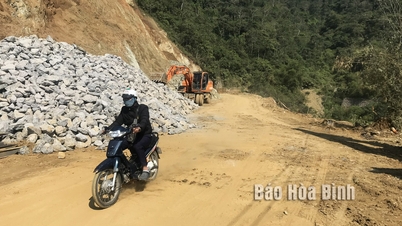


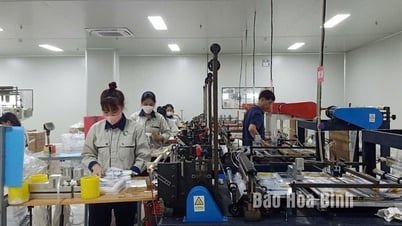




























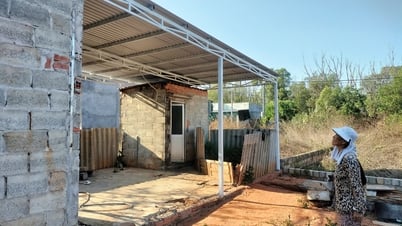








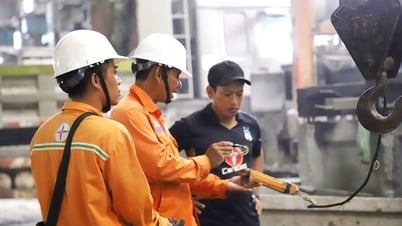











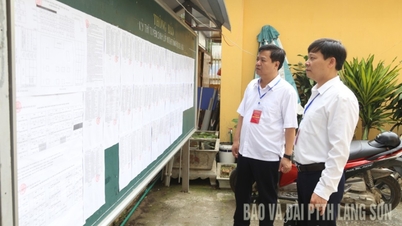















Comment (0)